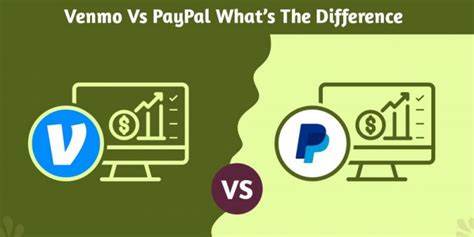In a digital age where convenience and speed are paramount, online payment platforms have become an integral part of our financial lives. PayPal and Venmo, both owned by PayPal Holdings, Inc., stand out as two of the most widely used peer-to-peer payment apps. However, each platform offers unique features and caters to different user preferences. In this article, we’ll compare paypal vs venmo across various aspects to help you decide which payment platform is the best fit for your needs.
Contents
User Interface and Ease of Use
PayPal: Known for its versatility, PayPal offers a broader range of services beyond peer-to-peer payments. The interface may appear slightly more complex due to its multiple features, including online shopping, international transactions, and business solutions.
Venmo: Venmo’s user interface is designed to be simple, intuitive, and user-friendly. Its focus is primarily on quick person-to-person transactions and social interactions, making it particularly appealing to a younger demographic.
Transaction Speed and Availability
PayPal: PayPal transactions can take a bit longer to process, especially when withdrawing funds to a bank account. International transfers may also involve longer wait times.
Venmo: Venmo prides itself on instant transfers to linked bank accounts, which can be particularly useful for those who need immediate access to funds. However, there might be a nominal fee for instant transfers.
Fees and Costs
PayPal: While sending money to friends and family within the same country is usually fee-free, certain transactions, such as currency conversion or international transfers, may incur fees. Additionally, business transactions and receiving payments for goods and services could involve charges.
Venmo: Sending money to friends and family is typically free, but using a credit card for transactions may result in a fee. Additionally, instant transfers and some business-related activities might have associated costs.
Security and Buyer Protection
PayPal: PayPal has a well-established reputation for security, offering buyer protection and dispute resolution services for eligible transactions. Users can also set up two-factor authentication for added security.
Venmo: While Venmo provides security features, such as PIN codes and the ability to make transactions private, it might not offer the same level of buyer protection as PayPal for certain types of transactions.
International Transactions
PayPal: PayPal is a more robust option for international transactions, allowing users to send and receive money in various currencies and providing services for cross-border payments.
Venmo: Venmo is primarily designed for transactions within the United States and may not be as suitable for international transfers.
Social Interactions
PayPal: PayPal doesn’t emphasize social interactions between users to the same extent as Venmo.
Venmo: Venmo is known for its social feed, allowing users to view and like each other’s transactions, which can add a social element to the payment experience.
Choosing between PayPal and Venmo ultimately depends on your individual needs and priorities. PayPal offers a broader range of services, making it suitable for both personal and business transactions, as well as international transfers. On the other hand, Venmo’s simplicity, instant transfers, and social interactions make it an appealing choice for quick and casual transactions among friends and family. Consider factors such as transaction types, fees, security features, and your preferred user experience to determine which platform aligns best with your financial requirements and preferences.



